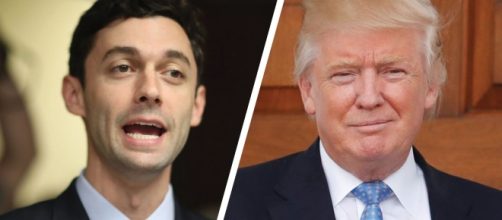The 'American Healthcare Act': - Today the House of Representatives passed Speaker Paul Ryan's and the Trump administration's second attempt at repealing Obamacare. The American Healthcare Act passed the house by a vote of 217-213 after weeks of starts and stops, but before the Congressional Budget Office had scored the bill on its impact on the economy and American citizens.
The bill is a reconciliation bill which only requires a minimum 51-49 majority vote to pass, thus bypassing the need for a filibuster-proof majority of 60-40. Reconciliation bills are limited, however.
They cannot increase the deficit unless measures are taken within the bill to offset those costs. The AHCA includes nearly $1 trillion in tax cuts which is offset by nearly $1 trillion in cuts of funding for Obamacare including cuts in medicare and protections for those with preexisting conditions. Initial attempts at passing the bill were stymied by the House Freedom Caucus, a group of roughly 30 far-right conservatives who believed the bill did not go far enough in weakening Obamacare. This incarnation of the AHCA satisfied the Freedom Caucus by decreasing protections for those with preexisting conditions. From here, the bill will go to the Senate where it faces a difficult path to being passed in its current state.
How it may affect House Republicans
27 Republicans voted for AHCA and won their races by <15 points last time around. They're in the danger zone. pic.twitter.com/DUbbiY1Xbz
— Nate Silver (@NateSilver538) May 4, 2017
As 538's Nate Silver points out, 27 Republicans who voted for the AHCA won their last elections by relatively slim margins. In his piece today Silver noted how unpopular the original incarnation of the bill was, pointing to a Quinnipiac poll in March where only 17% of respondents approved of the bill and 56% opposing. He further notes the bill moving rightward is likely to make the bill even less popular.
With this bill being Trump's first major legislative achievement, the bill will weigh heavy in the minds of voters in the 2018 midterms.
The historical precedent for this claim is 2010 midterms after Obamacare was passed. Historically, the first midterm election does not favor the incumbent party. This was the case in 2010 when the Democrats entered with a majority in the House and Senate and left with a minority in the House and saw six Senate seats flip to Republicans. Obamacare was cited by voters and pundits as having a large impact on those severe losses. With a bill that is even less popular today than Obamacare was back in 2010 and Trump's historically bad approval ratings, Republicans stand to face similar if not worse losses.
Jon Ossoff and the Georgia Sixth Runoff as a litmus test
The super Liberal Democrat in the Georgia Congressioal race tomorrow wants to protect criminals, allow illegal immigration and raise taxes!
— Donald J. Trump (@realDonaldTrump) April 17, 2017
Polling, however, is only so effective in gauging public sentiment.
Elections are the best way to get an honest assessment of the character of the political climate. Recently, the special election in Georgia's Sixth Congressional District to replace current House and Human Services Secretary Tom Price was used as such a test of how Trump's performance is impacting voters. Democratic candidate Jon Ossoff ran against several Republican candidates and led the final tally among all candidates with 48.1% of the vote. In a jungle primary like those in Georgia, a candidate must receive a majority vote to be declared an outright victor. A runoff election is scheduled on June 20th.
On the November 8th, 2016 general election Tom Price garnered a 61.7% majority to his Democratic opponent's 38.3%.
Between November 8th, 2016 and April 18th, 2017 democrats gained nearly 10%. Ossoff also inspired vast fundraising efforts, collecting over an unheard of $8.3 million. Ossoff won 70% of all voters who had not voted in the 2014 election. This enthusiasm and swing in support provided the some of the first tangible empirical pieces of data to show the negative impact of Trump's performance on Republicans running for office. The above tweet from Trump shows he is aware of the implications of this special election.
Right now polls are showing Ossoff and his Republican opponent running neck and neck, in keeping with the 10% swing from this past November. While overreacting to the results of a single special election ought to be cautioned against, this runoff election puts us in a position to see how Trump's first legislative achievement will be received by voters in an actual election.


